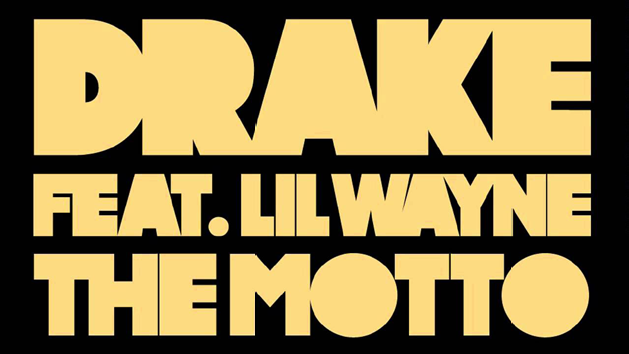
An episode of “Infinite Challenge” that aired in May revealed the darker side of the nation’s ‘YOLO’ lifestyle. On the “Hidden Card” episode, members of the show were each given a credit card and told to take turns to make any purchases they wished. They only need to keep one thing in mind. The card has a credit limit and anyone who exceeds that limit will be responsible for making full payment for all the purchases made that day. In the beginning, viewers were entertained watching the celebrities recklessly spending money for what their hearts desire such as clothes, gifts for loved ones, a 10-person meal, a drone, and even a motor scooter, all the while shouting ‘YOLO’. At the end of the show, Yoo Jaesuk maxed out the credit card at 5,020,000 won, and half jokingly and half seriously said, “This kind of YOLO lifestyle can surely make you die.”

#YOLO
The concept of ‘YOLO’, which is an acronym for “You Only Live Once”, has actually been around for a long time. It symbolizes living in the present, as the same chance will not likely come around again. Some more common phrases, similar to YOLO, are “one lives but once in the world” from the German play ‘Clavigo’ in 1774 and “carpe diem”, which is Latin for “seize the day”, coined by the famous Roman poet Quintus Horatius Flaccus. YOLO first grew in popularity in the 21st century when it was coined in a song released on November 29, 2011 by Canadian rapper Drake. The title of his song was “The Motto” in which he uses the term to promote his mix tape ‘YOLO’ due to be released the following year. The public loved the term and YOLO became a buzzword, often used when hash tagging something on SNS sites like Twitter and Instagram. YOLO became so common that the buzzword started to appear on television programs, other song lyrics, mixed into graffiti artwork, and so on. Even former president of the U.S., Barack Obama, said, “YOLO, man,” in one of his ‘Obama Care’ promotion films, making it even more popular.
People have now adopted the YOLO lifestyle. A survey done by Job Korea and Albamon on people adopting a ‘YOLO’ lifestyle showed that 44.4% of 734 respondents in their twenties and thirties answered that they live the YOLO way of life.1) In other words, almost half of today’s young generation are living for the present. In South Korea, the concept of a YOLO way of life has become the topic of a number of hot debates with increasing concern for the need to seek a stable future amidst the current high unemployment rate. Most people know the risk involved in following a YOLO lifestyle, but they utter it as an excuse to indulge on lavish items or as a joke to laugh at their impending doom from debt. What is worse, broadcasting television shows like “Youth Over Flower”, “Yoon’s Kitchen”, and “One Day, One Million Won” have endorsed this extravagant YOLO lifestyle. Famous celebrities travel the world without a care in the world. They ignore reality, open a small restaurant on Ghirl Island, spend carefree days at the beach, and even spend ridiculous huge amounts of money just in one day. They encourage viewers to leave it all behind, travel, and endorse the spending of money as the key to happiness. Indeed, YOLO stands for enjoying life in the present, but it is not a justification for overspending or living an impulsive, unplanned life.

YOLO, Why the Waste
One of the biggest problems with incorrect interpretations of a YOLO lifestyle is the wasting of money. Because people are overspending, they have less savings for the future. Unlike previous generations, saving for the future does not have much importance for young people. Also, more and more young people are extravagantly spending their earnings on food. Cho Youngmu, a researcher at LG Economic Research Institute said, “With it becoming more and more difficult to save up for a huge purchase like a house, the number of people opting to live luxuriously and enjoying a YOLO way of life has been steadily increasing. This is the probable cause behind the rise in the Engel index.”2) According to the Engel index, as the family income increases, the percentage of expenditure on food and beverage in relation to total family budget should decrease. However, according to the Bank of Korea, the Engel index for 2016 reached its highest in seven years. South Korea has typically followed Engel’s Law until 1990 when it started to rise. Since that year, though the average family income has increased, the Engel index has also increased.3) Simply put, money spent on food and beverages is now a bigger portion of the total expenditure pie, and the phenomenon has become more evident in recent years. Along with expenditures on food, single-person households are lavishing money on self-contentment. According to a research by The Korea Chamber of Commerce & Industry, young singleperson households tend to spend most of their money on traveling (41.6%), followed by self-development (36.0%), leisure and free time (32.8%), health (32.0%), and hobbies (26.0%).4) In other words, people today would rather spend money on themselves and momentary pleasures than save for the future.

One of the core reasons behind such waste is the absence of a definite plan and specific direction in life. People following a true YOLO way of life are devoted to the present, but also preparing for the future. Lee Yoonhak, Manager of The Age of 100 Lab, asserted that “The real meaning of following a YOLO lifestyle has been lost and people are engaging in ‘impulse buying’ and ‘excessive consumption’.”5) The philosophy behind the YOLO way of life has been corrupted. Many people claiming to be following the YOLO way of life are merely trying to avoid life’s harsh reality and wish to live for the moment as it is much easier and simpler. However, impulsive action can backfire in the future. One way a large number of people are spending money is on travel. According to the Korea Institute for Industrial Economics and Trade, the number of people traveling alone accounts for 10.3% of all domestic travels. This percentage has doubled since 2013 when it was 4.7%.6) Television shows broadcast celebrities traveling to exotic places and there are floods of online SNS posts of vacation spots, which entice people to do the same, leaving what is the cause of their anxieties to enjoy what they see as a perfect life. Even though it is important to get away from it all from time to time, using all of one’s savings for a short moment of pleasure cannot be the best way to a happy life.
The worst aspect of YOLO living may be taking overly dangerous risks. In the fall of 2012, rap artist Ervin McKinness died in a car accident. His fans discovered the cause of the accident from his last Twitter message. An hour before the accident, the artist posted the following message on his Twitter account, “Drunk af going 120 drifting corners #F*** it YOLO”.7) His reckless behavior only too clearly highlights the danger of misunderstanding YOLO. On the television show “Abnormal Summit”, Christian, the representative of Mexico said, “YOLO way of life is also popular in Mexico, but the connotation of the term has recently changed. People use it as an excuse to do something dangerous.” Also, Alberto, the representative of Italy, mentioned the increasing numbers of deaths from living irresponsibly such as taking a selfie on a train track just as the train is about to arrive and then running away. He said he has heard that 37% of the people who attempted such a perilous act lost their lives. To make it worse, Topsy announced that since the beginning this YOLO way of life trend, near the end of 2012, about 408,000 Tweets hash tagged with YOLO were done when the people were driving.8) With so many young adults engaging in risky behavior, it is clear how powerful the term is and how disastrous are its outcomes.

YOLO the Right Way
The first step towards a positive YOLO lifestyle is the right mindset. A survey by Job Korea and Albamon found that 41.7% of the people who view a YOLO way of life negatively said “people adopting the YOLO lifestyle have given up their future for the present”.9) Enjoying the here and now is nothing to be ashamed about, and it definitely will increase one’s satisfaction with life; however, the future is just around the corner and irresponsible lifestyle will catch up someday. It is incorrect to believe big amount money and fun are the keys to living a YOLO way of life. The idea has gone so far in the wrong direction that a new coined term ‘YOLA’ has resulted. It stands for “Young needs profit, Ongoing wealth management, Long-term investment, and Asset allocation”. In other words, there is a campaign to remind young adults that their life expectancy is long and they need to think of the future to prevent financial ruin. Also, it is important to understand that true happiness does not come solely from consumption. Koo Jungwoo, Sociology Professor at Sungkyunkwan University, emphasized, “The YOLO lifestyle in Korea has been embraced by young people because of the weakening belief in the corporate dream. Despite dedication and hard work, it is hard to move up the ladder to reach a higher status. We must be weary of criticizing the generation, but instead form a social environment that brings about big change.”10) In order to live a successful YOLO life, people must accept reality and make the best of what is important. Little changes can lead to a big change and a greater future.
A life without goals is meaningless. Borrowing some of Albert Einstein’s words, “If you want to live a happy life, tie it to a goal, not to people or objects.” Knowing what you want and need is crucial. Once a goal is set, set up a plan, and then, hard work and effort will naturally follow. A life worth living is a life of effort for oneself. Kwak Keumjoo, Psychology Professor at Seoul National University, claimed, “The YOLO way of life should not be focused on the spending of money, traveling, or enjoying thoughtlessly one’s leisure time. To evade regret in the future, one should be passionate about activities in the present, which also define living a YOLO lifestyle. Personally, I believe treasuring present joy and happiness around me right now is living passionately and splendid and the way to a true YOLO life.”11) One of the positive aspects of the YOLO lifestyle is the taking control and governing of one’s life as one see fit. Because a YOLO way of life prevents others from invading one’s personal life, it offers individuals the chance to invest time and money into oneself in ways that have yet to be explored.
Humans have but one life to live, so each and every day should be valued. Hollering out YOLO to justify one’s behavior or action is dangerous if one does not sincerely comprehend its meaning. Going on adventures, trying new things, and challenging oneself throughout life are wonderful ways to increase one’s happiness, but endangering one’s life is foolish. Life is precious. People who engage in reckless behavior under the idea of enjoying a YOLO lifestyle insult those who take the YOLO way of life seriously and live purposefully. With life expectantly at 100, life is long. No one can predict when or how their life will end, so stop putting off what you really want for later and do it now, but consider the future as well. The real way to YOLO living is to value life. Always keep in mind that life is a gift and that people must not take it for granted.

#YOLO_Make_it_Good
Leo Tolstoy had once said, “Joy can only be real if people look upon their life as a service and have a definite object in life outside themselves and their personal happiness.” Though he was not specifically addressing YOLO living, he does make a point about it. You only live once, so make it meaningful. Step back and widen your view of life. A grove of separate trees come together to form a forest. See the big picture of life and make wise decisions. Also, always remember that real happiness is felt when one brings joy to others, for true happiness comes when you can put a smile on someone else’s face.
1) Joo Hongchul, “Job KoreaXAlbamon, 44% of 2030’s Say They are Living a YOLO Lifestyle”, Geumgang Ilbo, August 2, 2017
2) Same as 1
3) Kim Junghyun, “’We Don’t Save on Food’…‘Engel’s Law’ Broken by YOLO Lifestyles”, Edaily, August 9, 2017
4) Kang Kyungrok, “[YOLO Life] Pennies Don’t Add Up to Buying a Car, ‘YOLO’s’ Happy Spending”, Edaily, June 16, 2017
5) Park Sungeun, Lee Nahyun, Kim Yoojung, “[Card News] ‘I Want to Put My YOLO Lifestyle Husband in a Coffin’…Wife is Outraged”, Yonhap News, July 31, 2017
6) Ha Hanhyun, “1 out of 10 Domestic Travelers are Traveling Alone”, JoongangIlbo, April 9, 2017
7) Sydney Lumpkin, “Young Adults Tweet #YOLO When Being Reckless”, ABC News, December 21, 2012
8) Same as 7
9) Same as 1
10) Kim Sumin, “Don’t Worry About the Future, but Enjoy the Present; Young People Suffer from YOLO Mania”, Munhwa Ilbo, February 1, 2017
11) Hwang Soojung, “YOLO, the New Pad. Reasons Why the Broadcasting Industry Has on a Sad Face”, News Pim, June 23, 2017


